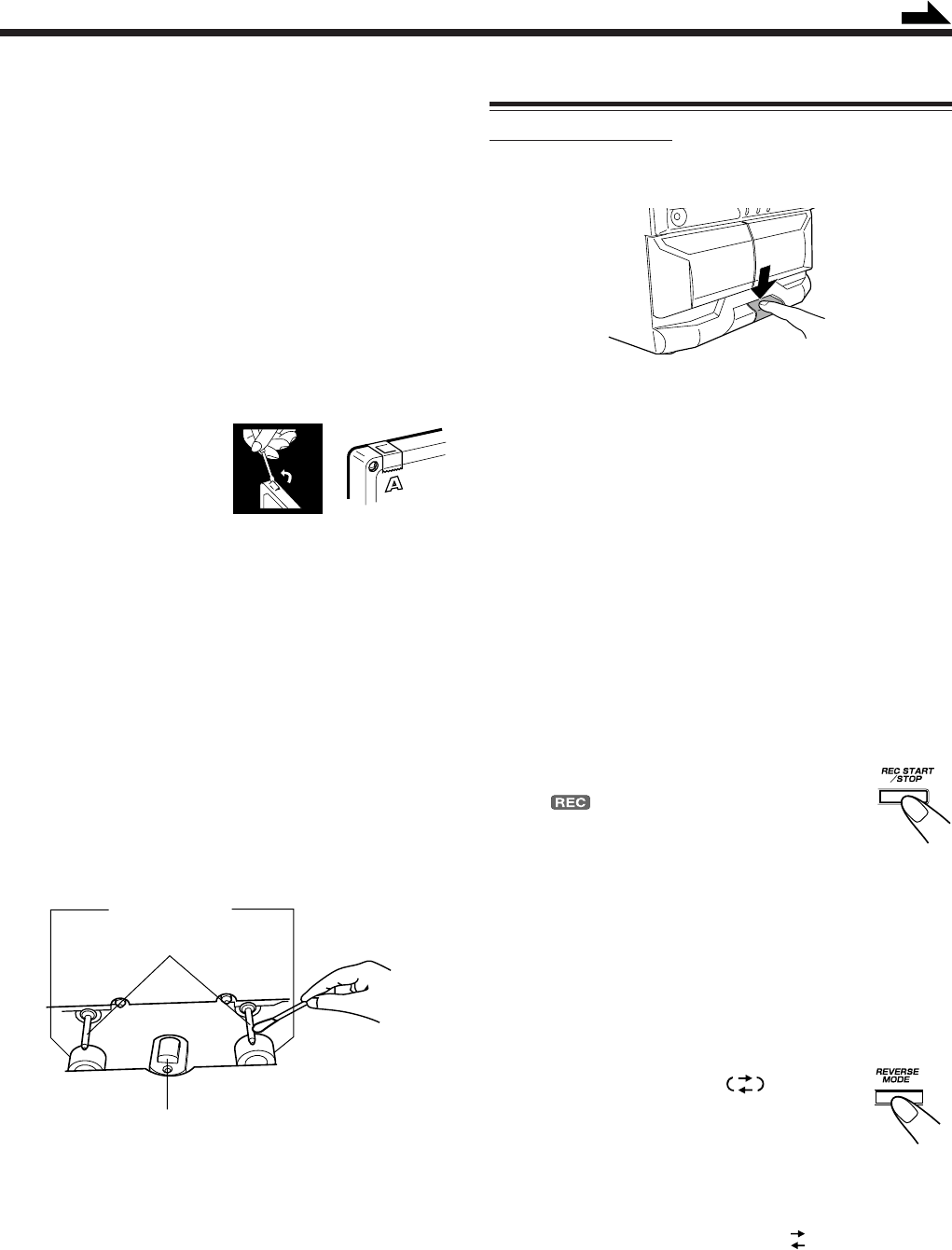
– 32 –
Recording
Recording a Tape on Deck B
On the unit ONLY:
1
Press EJECT 0 for the deck B.
2
Put a recordable cassette into deck B.
3
Close the cassette holder gently.
4
Start playing the source—FM, AM,
DVD/SVCD/VCD/CD player, deck A, or
auxiliary equipment connected to AUX jacks.
• When the source is SVCD, VCD or CD, you can also
use SVCD/VCD/CD Direct Recording (see page 33)
and Auto Edit Recording (see page 34).
• When the source is deck A, you can also use the
dubbing method. (See “Dubbing Tapes” on page 33.)
5
Check the tape direction of deck B.
• If the tape direction is not correct, press TAPE 2 3
twice then 7 to change the tape direction.
6
Press REC START/STOP.
The (recording) indicator lights up on
the display and recording starts.
• If no cassette is inserted, “NO TAPE”
appears on the display. If a protected tape is inserted,
“NO REC” appears on the display.
To stop recording immediately, press 7.
To remove the cassette, press EJECT 0 for deck B.
To record on both sides—Reverse Mode
Press REVERSE MODE so that the Reverse
Mode indicator lights up like— .
• When using the Reverse Mode for recording,
start recording in the forward (3) direction
first. Otherwise, recording will stop when
recording is done only on one side (reverse) of the tape.
To cancel Reverse Mode, press the button again so that the
Reverse Mode indicator lights up like— .
IMPORTANT:
• It may be unlawful to record or playback copyrighted
material without the consent of the copyright owner.
• The recording level is automatically set correctly, so it is
not affected by the VOLUME, the SUBWOOFER LEVEL,
the SOUND MODE, and the DSP Surround controls. Thus,
during recording you can adjust the sound you are actually
listening to without affecting the recording level.
• If recordings you have made have excessive noise or static,
the unit may be too close to a TV. Increase the distance
between the TV and the unit.
• You can use type I tape for recording.
To protect your recording
Cassettes have two small
tabs on the top to protect
from unexpected erasure or
re-recording.
To protect your recording,
remove these tabs.
To re-record on a protected tape, cover the holes with
adhesive tape.
To keep the best recording and playback sound quality
If the heads, capstans, and pinch rollers of the cassette decks
become dirty, the following will occur:
• Impaired sound quality
• Discontinuous sound
• Fading
• Incomplete erasure
• Difficulty in recording
To clean the heads, capstans, and pinch rollers
Use a cotton swab moistened with alcohol.
To demagnetize the heads
Turn off the unit, and use a head demagnetizer (available at
electronics and audio shops).
Heads
Capstans
Pinch rollers
Continued
EN32-34.CA-MXDVB10,B9,A9_f 02.4.24, 9:45 AM32


















